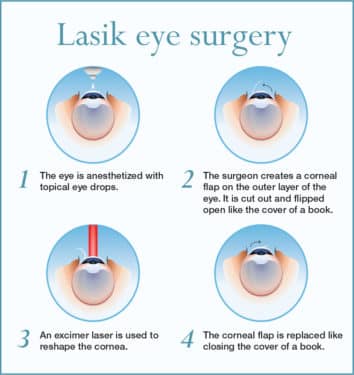Intrigued In Refractive Lens Exchange? Explore Essential Information And Responses That Might Reinvent Your Vision Experience
Intrigued In Refractive Lens Exchange? Explore Essential Information And Responses That Might Reinvent Your Vision Experience
Blog Article
Advanced LASIK Technology -Miller Blackwell
If you're considering refractive lens exchange, you probably have a lot of concerns. This treatment might alter how you see the globe, providing advantages like minimized reliance on glasses. Nonetheless, it's important to understand the process, threats, and that qualifies as a great candidate. Allow's check out these essential aspects so you can make an enlightened choice concerning whether RLE is right for you.
What Is Refractive Lens Exchange and Just How Does It Function?
Refractive lens exchange (RLE) is a surgical procedure made to change your eye's natural lens with a synthetic one, correcting vision problems like nearsightedness, farsightedness, or presbyopia.
Throughout the treatment, your doctor makes a small laceration in the eye, removes your natural lens, and inserts an intraocular lens (IOL) tailored to your vision requires. This outpatient surgical procedure usually takes about 15 to thirty minutes per eye and is performed under local anesthetic.
You'll likely see renovations in your vision almost promptly, though complete healing may take a couple of weeks. RLE is especially helpful for those over 40 or with high prescriptions, providing a long-lasting service contrasted to glasses or call lenses.
Your eye treatment expert can help identify if RLE is right for you.
What Are the Benefits and Threats of Refractive Lens Exchange?
Picking refractive lens exchange can cause significant enhancements in your vision, yet it is very important to evaluate both the advantages and threats before making a decision.
On https://www.healio.com/news/ophthalmology/20210827/with-resurgence-of-lasik-debate-reemerges-on-femto-vs-mechanical-microkeratomes , this procedure can enhance your sight by correcting issues like presbyopia, nearsightedness, and hyperopia. Several people appreciate reduced dependence on glasses or call lenses, which can significantly boost their quality of life.
Nonetheless, it's important to consider prospective risks. Difficulties can consist of infection, glare, or halos around lights.
There's likewise a chance of overcorrection or undercorrection, which may call for additional procedures.
Who Is a Suitable Candidate for Refractive Lens Exchange?
If you're thinking about refractive lens exchange, it is very important to understand whether you fit the profile of a perfect candidate. Usually, you may be an excellent prospect if you're over 40, experience presbyopia, or have high degrees of nearsightedness or farsightedness.
It's also essential that your vision is stable, indicating your prescription hasn't altered significantly in the past year. If you have cataracts or other eye problems, you might take advantage of this treatment too.
Nonetheless, particular elements, like unchecked diabetic issues or autoimmune illness, could disqualify you. To determine your candidateship, talk to an eye care specialist that can examine your specific scenario and recommend the most effective strategy customized to your needs.
Final thought
In conclusion, refractive lens exchange can be a transformative choice for enhancing your vision, specifically if you're over 40 or have a high prescription. While the benefits are significant, it's important to consider the threats and consult with your eye treatment expert to figure out if you're a perfect prospect. With the ideal information and assistance, you can make an informed choice and perhaps delight in a life with minimized dependence on glasses.
